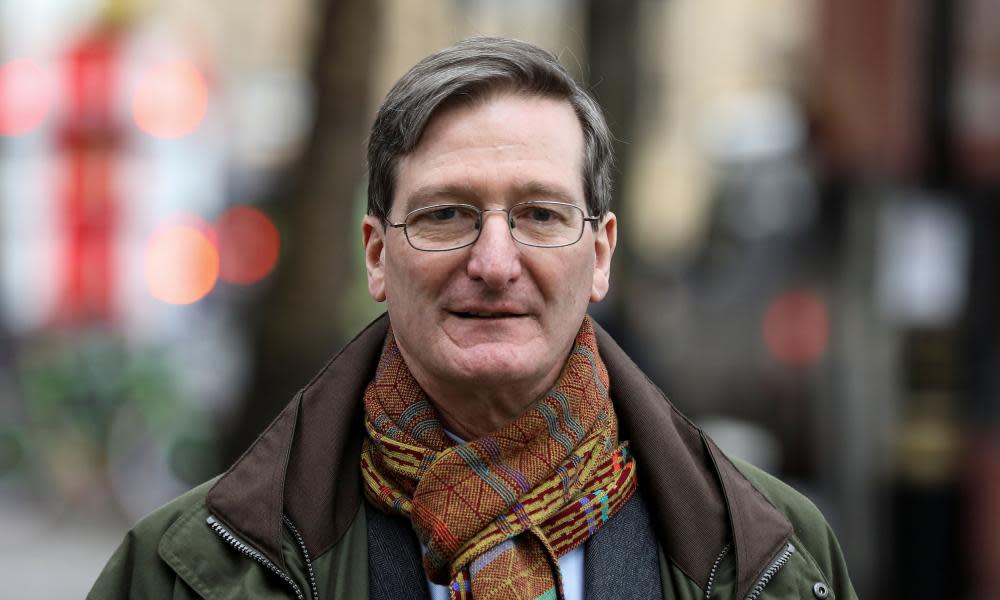Grieve: senior Tories may have to vote down Johnson government

Former cabinet ministers could be among those who feel they have no choice but to vote down a Boris Johnson administration in order to prevent a no-deal Brexit, Dominic Grieve has said.
The former attorney general said it was significant that both Johnson and his rival, Jeremy Hunt, had rejected any prospect of compromise on the backstop at a Sun leadership hustings on Monday night.
Johnson and Hunt declared the Northern Ireland backstop “dead” and ruled out trying to tweak it, saying it was no good to have a time limit on the backstop or a way of the UK exiting it unilaterally – even though Eurosceptics had previously indicated they could vote for such compromises.
Grieve said the tough stance was not surprising but signalled that no deal was more likely.
“I think it is significant because I have heard it suggested – not just in this country but in the EU – that there might be some possibility of compromise by the backstop being tweaked,” he said. “On the face of it, this entirely rules it out, which is always what I thought would happen.”
Grieve, who has led multiple rebellions in parliament to attempt to stop leaving the EU without a deal, including recent efforts to amend the Northern Ireland bill to prevent a prime minister proroguing parliament, said MPs were running out of other legislative options.
Prorogation is the official term that marks the end of a parliamentary session. After being advised to do so by the prime minister, the Queen formally prorogues Parliament. This takes the form of an announcement in the House of Lords on the Queen's behalf. It is a speech, written by the government, which usually describes the bills which have been passed during that session, and summarises what has been achieved.
It means that all work on existing legislation stops, and MPs and Lords stop sitting. Prorogation also automatically kills any bills, early day motions or questions to ministers going through parliament.
Parliament can then be reopened a few days later with a fresh slate of legislation intentions, set out in a new Queen's Speech at the formal State Opening of Parliament.
“Blocking no deal technically may be quite difficult but as I’ve said on many occasions in the last 12 months, if the government persists in trying to carry out a no-deal Brexit I think that administration is going to fall,” he said.
He said Tory MPs would want to avoid a no-confidence vote, giving it could pave the way for a general election. MPs who voted against their own party in a confidence vote are likely to lose the whip and be de-selected at the next election.
“All Conservatives want to find a way out of this that avoids bringing down one’s own administration and if I could find a way – and I have been trying to find different ways of gently nudging a government away from no deal – then I will take it,” he said.
“But at the end of the day, by the end of next week there are going to be more Conservatives who have indicated no deal is unacceptable and many of them will no longer be on the frontbench.”
Asked if he meant whether the chancellor, Philip Hammond, or the justice secretary, David Gauke, might be prepared to take such steps, Grieve did not say it was certain.
“Certainly my impression talking to colleagues in the house is if we get to the point where no deal becomes a real prospect then there are going to be more colleagues opposed to it because they think it is going to be catastrophic,” he said.
A new prime minister’s working majority in the Commons is likely to be reduced to three if the Liberal Democrats win the Brecon and Radnorshire byelection on 1 August.
Two MPs, Grieve and Kenneth Clarke, have suggested they would be prepared to vote against the government but a number of other MPs have positions that are uncertain.
They include the independent Northern Irish MP Lady Sylvia Hermon, and the former Labour MPs Frank Field, Ian Austin and John Woodcock, who are strongly opposed to a Jeremy Corbyn government.
Grieve launched a report from the People’s Vote campaign on Tuesday that claims six possible scenarios for the next phase of Brexit will all end in deadlock in parliament.
The report argues that changing the backstop was “tested to destruction by Theresa May” and a Northern Ireland-only backstop would be rejected by parliament.
Neither option is being proposed by Johnson or Hunt, but the report also concludes a tweaked version of May’s deal with cosmetic changes to the backstop or a longer transition period would also fail to pass parliament.
It also highlights “enormous risks” for the new prime minister of calling a general election. “Assuming it took place before 20 November, defeat would make them the shortest serving prime minister of the United Kingdom in history, beating the record set when George Canning died in August 1827 after 119 days in office.”

 Yahoo News
Yahoo News 
